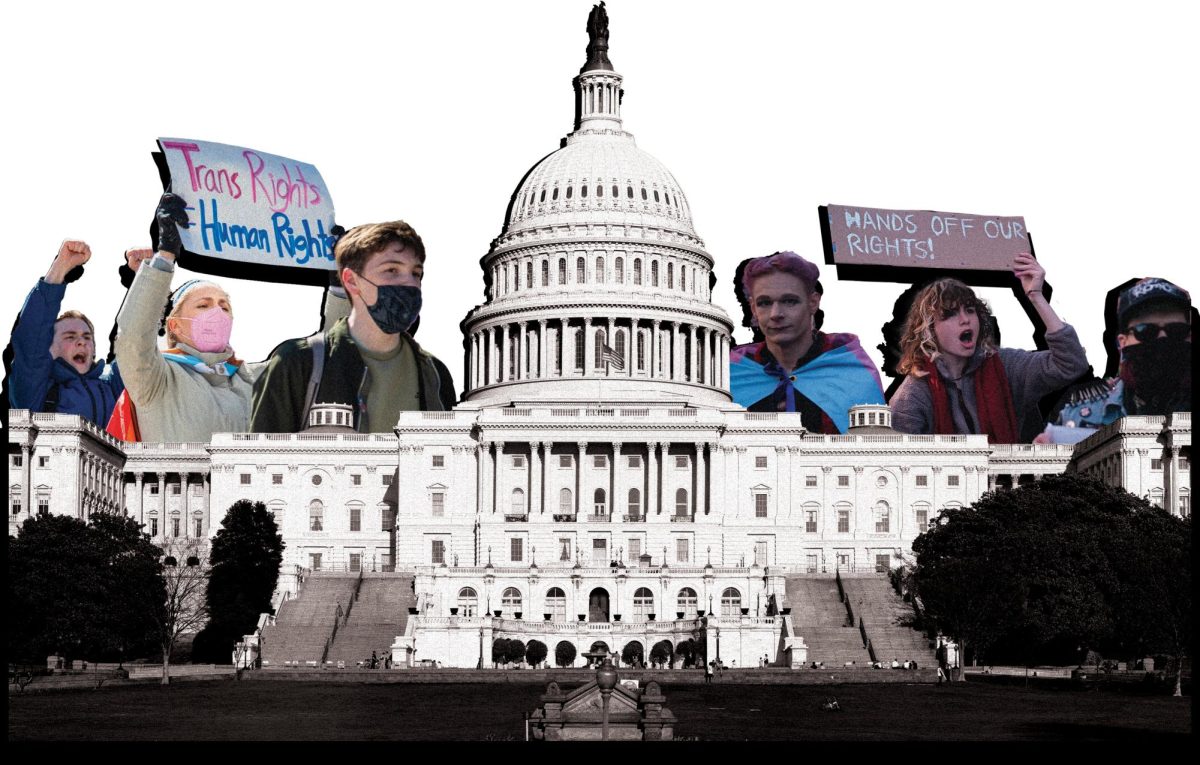Anti-trans bills are being proposed nationwide. These laws aim to deny transgender people access to fundamental healthcare, education, legal recognition and the freedom to publicly exist.
According to Trans Legislation Tracker data from October 2023, 84 out of the 583 bills pitched this year were passed. All have already become laws. These numbers will likely fluctuate as legislative sessions continue throughout the year.
Statistics of anti-transgender legislation being discussed in the United States have doubled from last year. This has much to do with Republican-led states and the upcoming election cycle.
“It’s 2023 and the election cycle next year is a big election year,” social science teacher Ms. Wanda Moore said. “I think until this election cycle subsides, meaning the 2024 presidential congressional election and all of those elections at the state level, people who are running for a position in Republican states will make a big deal of this issue.”
Some Republican lawmakers, such as Party Representative Steve Toth, justify these bills with religion. This angers many, including junior Christine Bonacles, a transgender student.
“If their religion preaches about love and loving one another, then it doesn’t make sense to use it to hurt people who are just here to live and be themselves,” she said.
The LGBTQ+ community believes the influx of laws that deny civil rights to transgender people should be labeled as a political issue, since it’s harming humans who have done nothing but exist.
“I think the discrimination against transgender people is done primarily in Republican states, but I also feel like people on the Democratic side are capable of it too,” Bonacles said. “Everyone is capable of hatred.”
Nearly half of the laws introduced this year are education-related, according to CNN. The shift of focus onto this category follows the signing of the Parental Rights of Education bill back in 2022. It prohibits classroom discussion about sexual orientation or gender identity.
Senate Bill 1100, a state bill that forbids transgender students from using public school bathrooms that don’t correspond with their gender assigned at birth, was signed by Idaho Republican Governor Brad Little in March. Set to take effect later this month, it has caused an uproar among the LGBTQ+ community.
“I feel like that would increase the risk of transgender students being attacked or called creeps in the restrooms,” Bonacles said. “Their mental health is in danger. They’re being forced to use a restroom that doesn’t match their identity by the government that is supposed to protect its people.”
Ms. Moore, who is part of the community as a gay person, is perplexed as to why the bill even exists.
“It seems so unnecessary to me,” she said. “People use the bathroom to do their business and wash their hands and comb their hair. It just seems so unnecessary.”
Rise of prejudice against transgender students popularized forced outing bills. These laws require written consent from parents in order for those that are under age to be referred to with a pronoun that doesn’t align with their sex assigned at birth.
For students who have not yet come out to their parents, these bills could potentially cause harm that is highly avoidable.
“Why can’t people just respect someone’s identity and treat them with decency?” Bonacles said. “There is no need to go out of one’s way to hurt these people and get permission in order to call them by pronouns and names that don’t correspond with their identity.”
Numerous others, including Ms. Moore, share the same opinion as Bonacles and are outraged by this violation of human rights.
“There has to be something in the Constitution that protects the right for a person to be referred to as they choose,” Ms. Moore said. “If there isn’t anything in the Constitution that this Supreme Court can find, then I think all bets are off. Let’s just close down the courts, tear up the Constitution if there’s nothing you can find in there that says that’s not a violation of rights.”
Although the situation seems grim for transgender people right now, the discrimination they’re currently facing resembles the movement against gay rights and same-sex marriage in previous years, which has made considerable progress over time. Ms. Moore believes that the fight for transgender rights will follow the same pattern.
“I have seen how civil rights for different groups that have been discriminated against progressed and gradually changed,” she said. “As a gay person who’s 61 years old, I never would’ve believed if you told me when I was a teenager that people being gay would become pretty accepted and mainstream. Same-sex marriage is not only legal and constitutional, but is now a fairly common practice; that brings me hope. If we’re willing to work for it, then eventually, what is right does win.”



